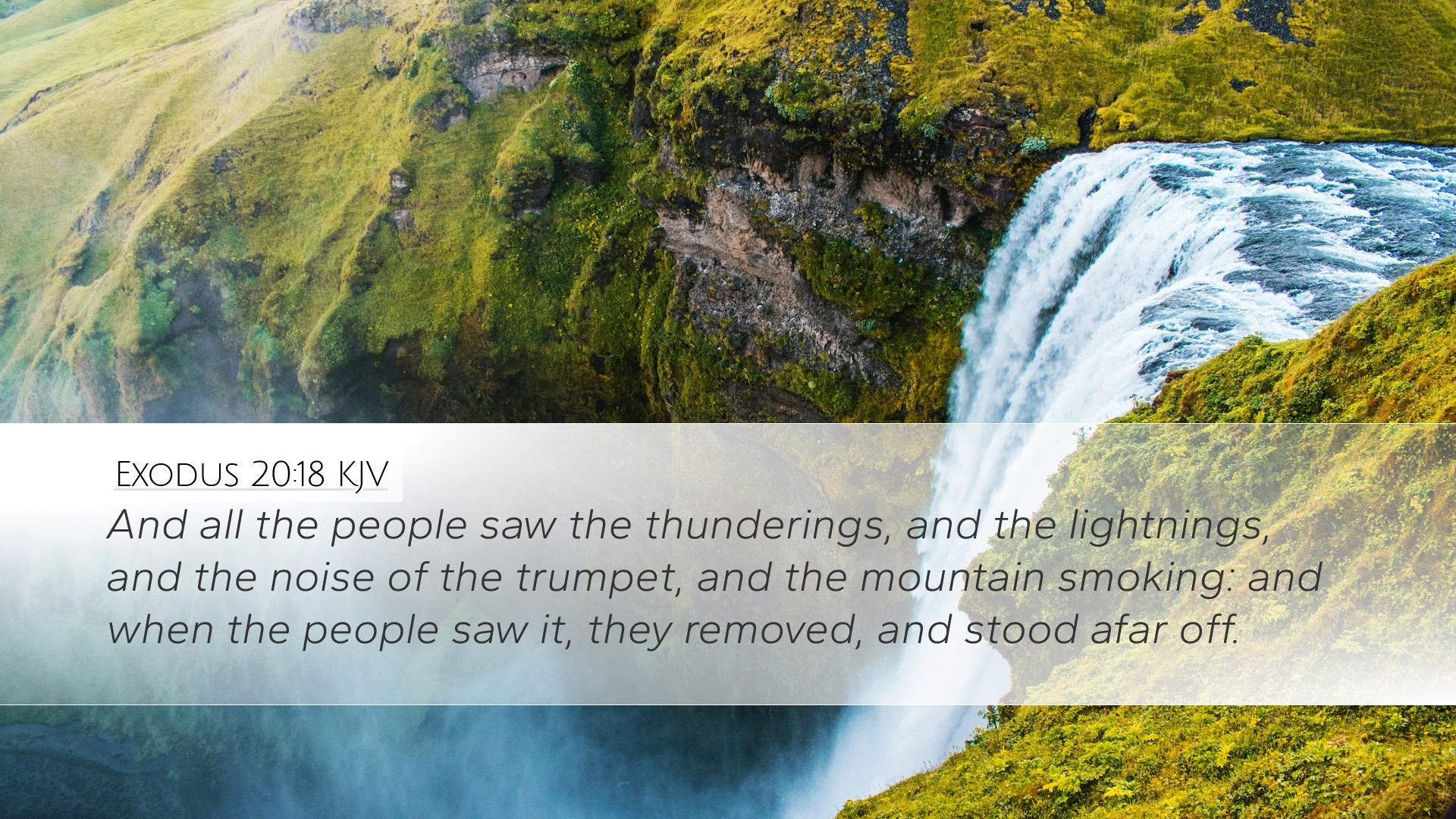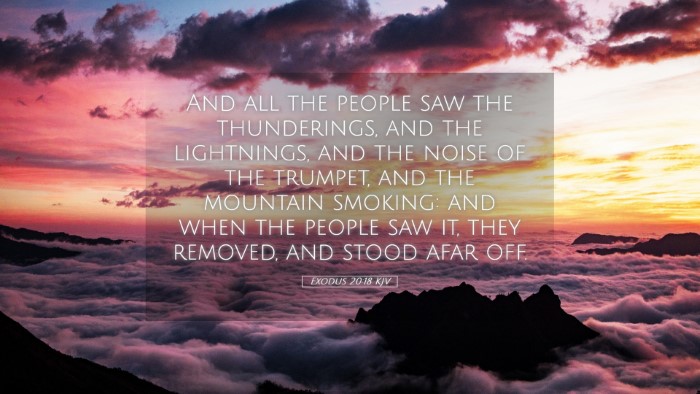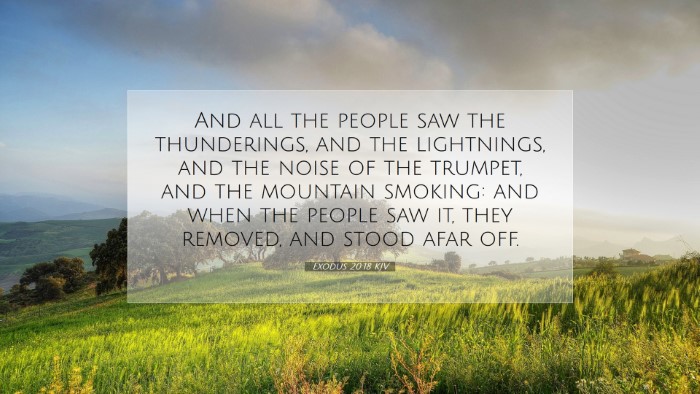Commentary on Exodus 20:18
Verse: "Now all the people witnessed the thunderings, the lightning flashes, the sound of the trumpet, and the mountain smoking; and when the people saw it, they trembled and stood afar off." (Exodus 20:18, NKJV)
This verse occurs in a pivotal moment during the giving of the Ten Commandments. It encapsulates the profound theophany—the visible manifestations of God's presence—that accompanied the covenant-making event between God and Israel. In engaging with the public domain commentaries, we can gain rich theological and practical insights from this verse.
General Observations
Exodus 20:18 reveals the awe and fear of the Israelites when confronted with God's holiness and majesty. The response of the people is not merely about witnessing signs but an understanding of their position before a holy God. This moment sets a precedent for how the Israelites are to live in covenant with God.
Insights from Matthew Henry
Fear and Awe: Matthew Henry emphasizes the overwhelming display of God's power. The terrifying sights—thunderings, lightning, and smoking mountain—were divine manifestations of God's glory. The people’s response of trembling indicates a healthy fear of God, recognizing His sovereignty and holiness. Henry highlights that such fear is essential in approaching God in worship and obedience.
Separation and Holiness: According to Henry, the distance maintained by the people signifies their understanding of their sinful nature. The fear that drove them back reflects a recognition of their unworthiness and the holiness of God. This denotes a crucial aspect of Israel's relationship with God, where they must comprehend their need for mediation, as later seen in the Levitical priesthood.
Insights from Albert Barnes
Divine Manifestation: Albert Barnes discusses the significance of the physical phenomena accompanying God's presence. He describes thunder, lightning, and smoke as representations of God's majesty and terror. Barnes asserts that this encounter was intended to signify to the Israelites the seriousness of the covenant they were about to enter into.
Human Response: Barnes also notes that the people's fearful reaction is instructive for contemporary believers. It serves as a reminder of the reverence with which God's commandments should be approached. The trembling illustrates the proper attitude in the presence of divine holiness, serving as a caution against flippancy in worship and obedience.
Insights from Adam Clarke
Symbolism of Natural Elements: Adam Clarke offers a thoughtful view on the elements of nature present in the narrative—lightning, thunder, and smoke—as symbols of divine authority. Clarke points out that these elements are not merely physical but serve as a theological narrative demonstrating God’s power over creation. This powerful imagery emphasizes that God is not only near but also governs all aspects of the natural world.
Call to Holiness: Clarke further discusses how this holy fear should inspire a commitment to holiness. The trembling of the people reflects the truth that an encounter with God demands a response—a response marked by awe, the desire for purity, and adherence to God's commands. This is a foundational moment that marks the start of a covenant relationship characterized by obedience and reverence.
Theological Implications
The tremble and fear exhibited by the Israelites underline important theological points regarding God’s nature and humanity’s response:
- God's Holiness: The physical phenomena signify God's complete otherness and purity. According to scripture, God cannot tolerate sin, hence the reverent fear of the Israelites emphasizes the seriousness of what it means to stand before a holy God.
- Mediation Required: The distance kept by the people illustrates a need for mediation, aptly fulfilled in Christ, who stands between humanity and God, offering reconciliation and access to His presence.
- Fear as a Positive Attribute: The fear of the Lord is often the beginning of wisdom; thus, the trembling of the people showcases a right relationship established through reverence and acknowledged need for God's grace.
Practical Applications
Exodus 20:18 serves as a relevant teaching for pastors, students, and theologians today. Several practical applications arise:
- Cultivating Reverence: Church leaders should cultivate a culture of reverence in worship, encouraging congregants to approach God with appropriate awe.
- Preaching the Holiness of God: Sermons should incorporate a strong emphasis on God’s holiness, which might encourage believers to live a life that reflects His character.
- Understanding Our Position: Believers need to understand their position before God, fostering humility and dependence on His grace.
Conclusion
Exodus 20:18 is a rich verse that conveys deep theological truths about God’s nature and the appropriate human response. The insights from Matthew Henry, Albert Barnes, and Adam Clarke underscore the need for believers to approach the holiness of God with reverence and fear. The foundational experience of the Israelites foreshadows the ongoing relationship between God and His people, where grace through Christ offers a fuller understanding of His holiness and love.


